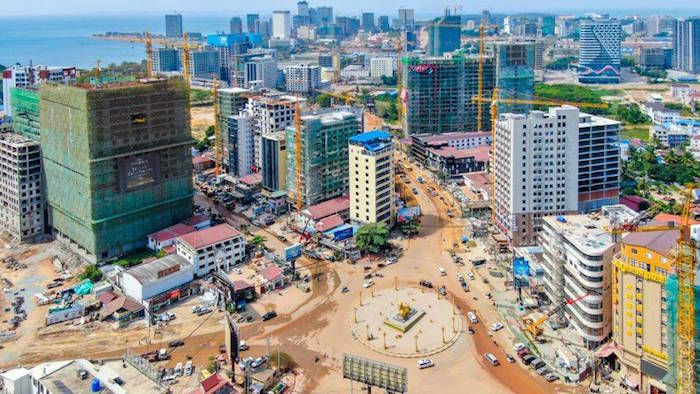While it’s too early to say Cambodia’s coastal gambling hub has risen phoenix-like from the ashes, there are encouraging signs that Sihanoukville is serious about transforming into a mass market tourism destination, with a significant improvement in urban infrastructure.
Sihanoukville exploded in a few short years from a sleepy village, with stunning palm-fringed beaches, into an environmental nightmare. An influx of investment, primarily from China, fuelled a construction boom with no urban planning, controls, or infrastructure.
Much of the investment went into new casinos, which were little more than a front for online live dealer operations targeting Mainland Chinese. That was until Prime Minister Hun Sen banned online gambling under pressure from Beijing, leaving serious concern about the future of Sihanoukville and its casino industry.
However, according to those on the ground, the government did follow through on its promises to upgrade infrastructure and serious investors are now taking another look at the town’s long-term potential.
“There are no more bumpy roads, there are bright lights during the night and you feel much safer when the streets are no longer dark,” said Gary Tham, director of strategic planning at the Jin Bei Group, which opened the Jin Bei Palace in March this year in the second phase of its development projects in Sihanoukville. “During the roadworks they redid the sewer and water system, so everything is falling in place. It’s a very good thing for Sihanoukville.”
What used to be a bumpy, hour-long ride from the airport into town, now takes about 30 minutes and there is a secondary road that follows along the coastline for a more scenic route. A luxury shopping mall opened earlier this month, while Tham said the town also now boasts an 18-hole golf course.
However, the casino industry has been gutted following the online ban and the subsequent Covid-19 crisis. At least 50 percent of the casinos have gone and it’s now mostly just the few big brands still in operation, says Tham, who put the number at between five and ten.
In September last year, the Ministry of Finance listed 61 operating casinos in the town, though unofficial figures were higher still.
The Ministry of Tourism has made clear that its plans for Sihanoukville are for a family friendly tourism destination aimed at the mass market and recently published regulations on gaming in Cambodia made no reference to any change of heart on the online sector.
“The really, really good times for the VIP rolling market are gone and won’t come back unless online gaming comes back,” says Tham. “The amount of money we’re talking about is just a different ball game. There were people making millions in a day or two. Easy come easy go. Those times have gone.”
Still, the change has attracted renewed investment interest and not necessarily on a small scale.
Ben Lee, managing partner of iGamiX Management & Consulting said there are some big name project developers looking at the market.
“For them to come and look at Sihanoukville, with the type of money they are considering, really denotes something at work here,” he said.
One big name that has publicly mentioned Sihanoukville as a possible expansion opportunity is NagaCorp, Cambodia’s largest and most successful operator. In its recent interim report, it said it was looking at both Sihanoukville and Siem Reap for a possible IR, but added that the resort would not necessarily include gaming.
“It is the intention of the group to be perceived as a more comprehensive and quality integrated resort developer with emphasis also on non-gaming as a source of revenue,” it said, adding, “We anticipate that the non-gaming and gaming IR will coexist with each other in a mutually beneficial manner.”
Sihanoukville’s urban planning efforts are being helped by city planners from the Southern Chinese city of Shenzhen. In February this year, the government announced ambitious aspirations to use Shenzhen as a blueprint for Sihanoukville’s development.
Outside of tourism, Sihanoukville has the advantage of being at the crossroads of multiple infrastructure initiatives under China’s One-Belt-One-Road project and is home to the country’s only deepwater port. It is already the site of a sprawling special economic zone, which houses about 153 companies, with more such zones reportedly in the works.
At the recent opening of the Prince Huan Yu shopping mall, provincial governor Kuoch Chamroeun was cited by local media as saying more than 60 companies plan to invest a total of $10.74 billion in tourism and hotels.
For a country which doesn’t allow locals to gamble, having access to a large expatriate business community is another potential plus for the casino industry. Nagacorp reported that its average daily business volumes in the mass market sector from August to September were back to about 97 percent of their pre-pandemic levels, helped by expatriates in the capital.











